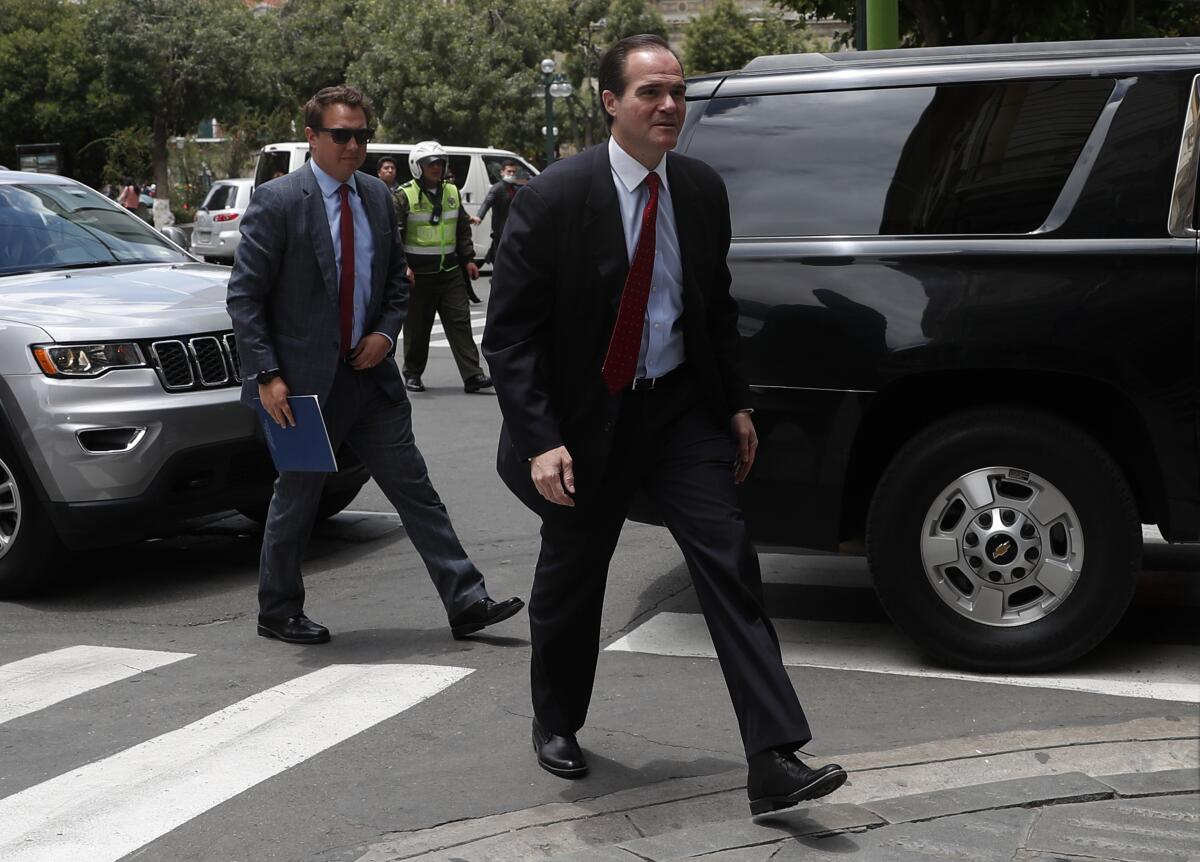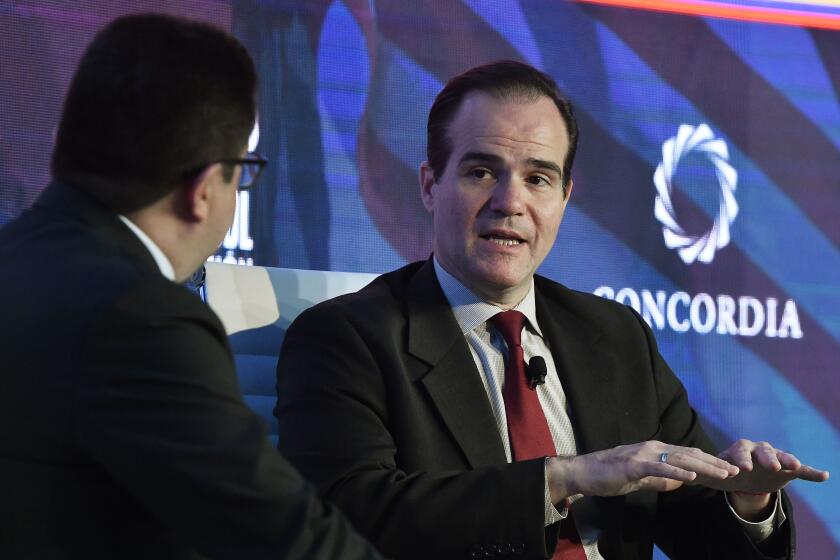American takes the reins of Inter-American Development Bank after controversial election

- Share via
For the first time, an American will lead the Inter-American Development Bank after Saturday’s victory of a Trump-backed candidate in a controversial election under threat of boycott from several member countries.
Cuban American Mauricio Claver-Carone, an advisor to the president in charge of Latin American policies in the National Security Council, obtained the majority of the IDB members’ support despite Argentina’s abstention, which led an effort to delay the vote past the November elections.
The bank said Claver-Carone was elected during a virtual meeting of the board of governors.
“He will take office on October 1, 2020, for a five-year term. As President, he will oversee the operations of the IDB Group, which comprises the IDB, IDB Invest and IDB Lab,” the bank said in a statement.
In rare challenge to Trump, several countries are trying to block his nominee to lead the Inter-American Development Bank.
The candidate thanked U.S. partners for “maintaining the integrity of this electoral process and sharing in our common vision of a stronger and more responsive IDB.”
“This victory is for Latin America and the Caribbean,” he added.
At the last minute, Argentina and Costa Rica withdrew their candidates. Mexico said it would participate in the elections when it became clear that Claver-Carone had the necessary votes to win.
The three countries, plus Chile, and a top European Union diplomat, Joseph Borrell of Spain, had protested an American nomination for the presidency, a position that, according to an unspoken rule of the bank, has been held by a Latin American during the bank’s six decades of existence. The outgoing IDB president, Colombian Luis Alberto Moreno, also broke unwritten rules by twice rejecting Claver-Carone’s nomination for vice president by the Treasury Department.
Diplomats, experts and Democratic politicians in the United States also objected to the nomination of Claver-Carone, considering him a right-wing candidate known for his combative style that would clash with a Democratic administration, should Joe Biden win in November.
The Inter-American Development Bank, a key regional lender, has 48 members from Latin America, the Caribbean and Europe, plus the United States, Canada, Israel, Japan, Korea and China. Its president must obtain the support of most member countries and an absolute majority of those holding IDB shares.
Claver-Carone promised to modernize the IDB, make it more efficient and inclusive, with the appointment for the first time of a Caribbean vice president. He said he would focus on recovery from the COVID-19 pandemic and committed to staying in the position for only five years. The IDB has had only four presidents in 61 years.
“My commitment remains the same: to work with the IDB member countries to outline a strategy to strengthen the bank, respond to the needs of the region, and create opportunities for shared prosperity and economic growth,” he said.
The senior U.S. official carried out an intense campaign that took him to several countries in the region and early secured the necessary votes to be elected. In August, 17 member countries that supported the United States’ candidacy stated their opposition to postponing the elections, citing urgent needs to face the pandemic. Claver-Carone also succeeded in getting other countries such as Haiti, El Salvador and Israel to co-sponsor his nomination. Public support from Japan on Friday, a member country that controls the most votes after the U.S., Brazil, Argentina, and Mexico, paved the way for Claver-Carone’s victory.
Before being appointed to the National Security Council in 2018, Claver-Carone, one of the architects of the sanctions campaign against Cuba and Venezuela, served as the U.S. representative to the International Monetary Fund and as an advisor to the Treasury Department.
More to Read
Sign up for Essential California
The most important California stories and recommendations in your inbox every morning.
You may occasionally receive promotional content from the Los Angeles Times.











